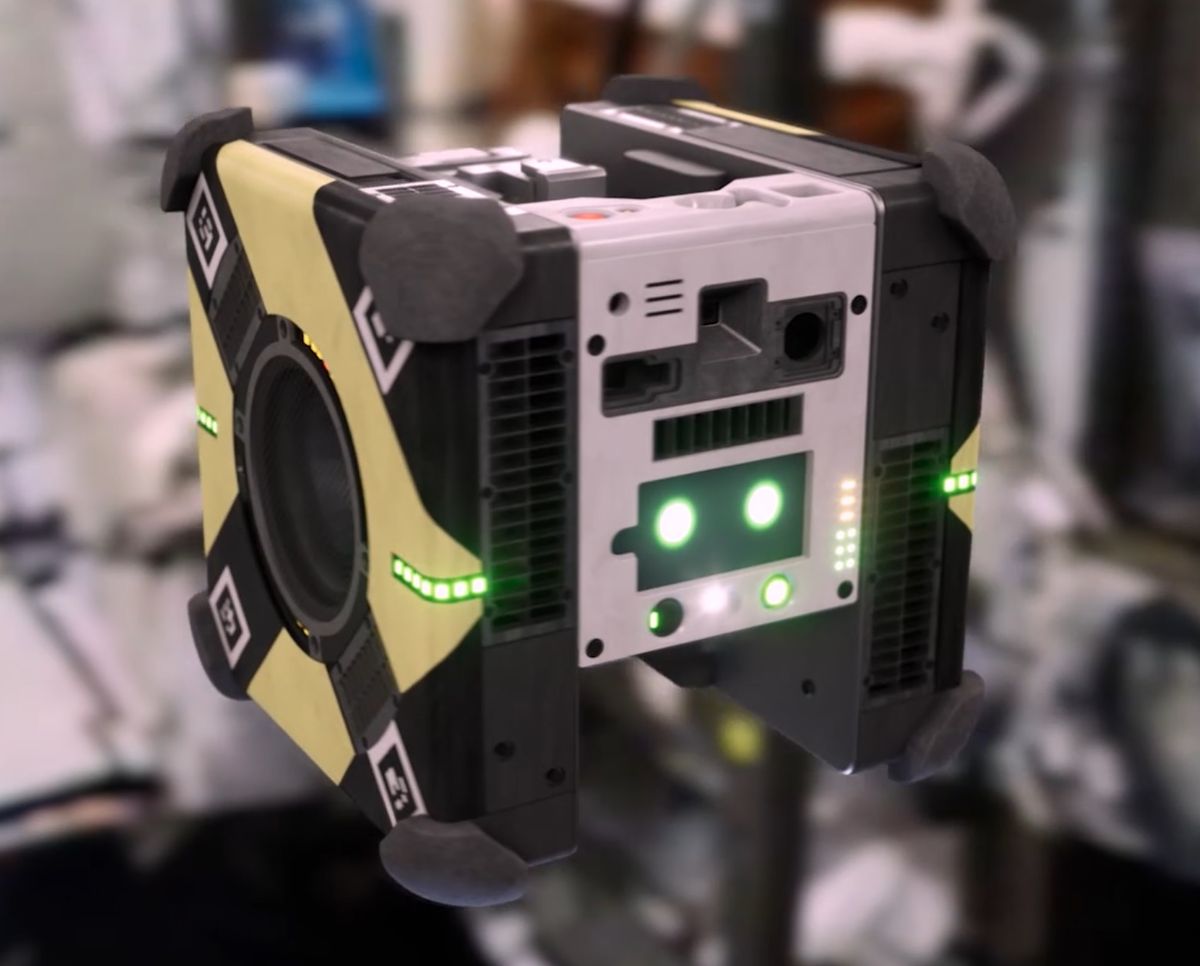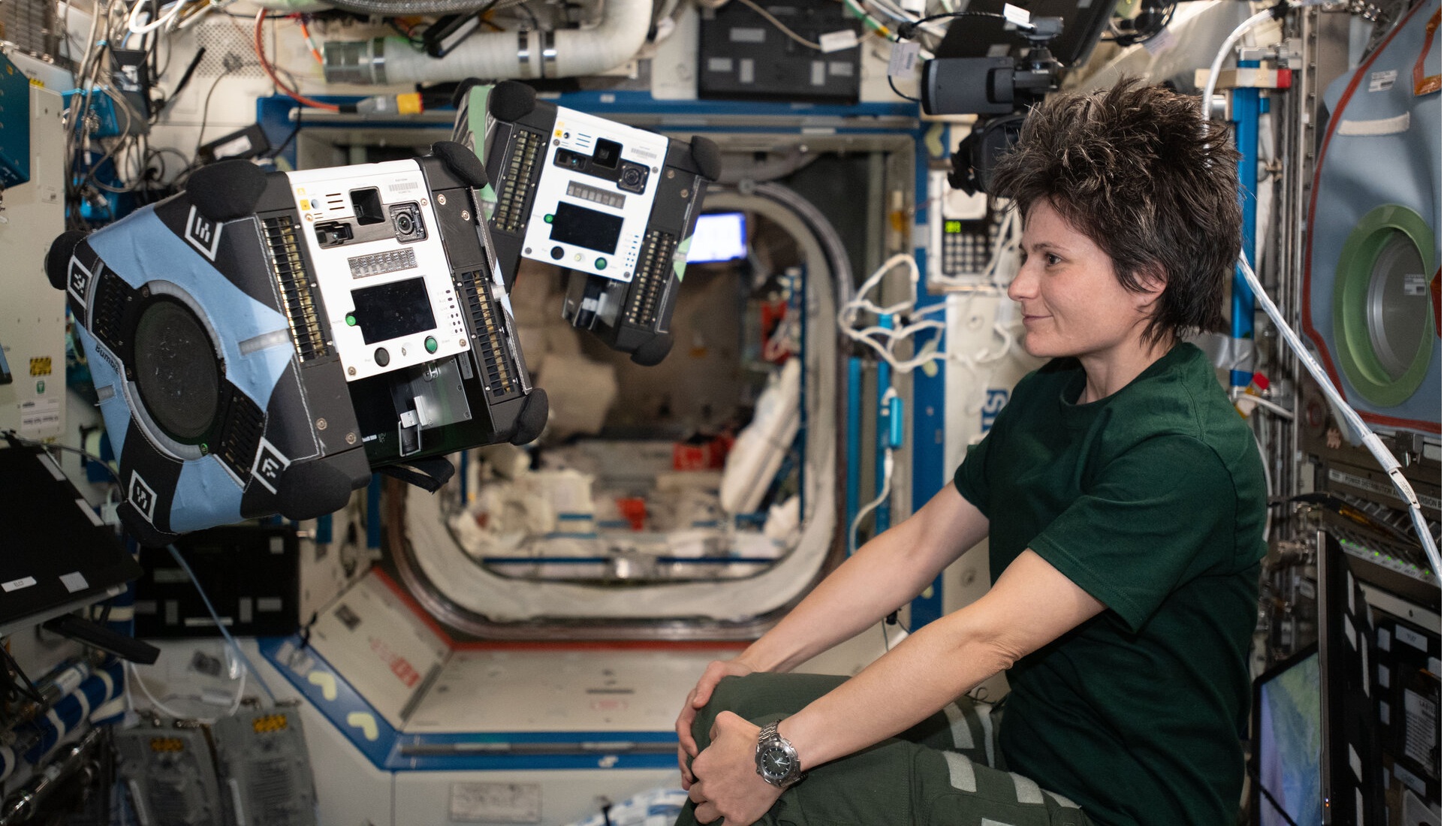FuzzyBuzz
Welcome to the FuzzyBuzz experiment!
Get ready for an awesome space adventure with the FuzzyBuzz experiment! Funded by the Agencia Espacial Española (AEE) and coordinated by the European Space Agency (ESA) on the International Space Station (ISS), FuzzyBuzz is all about making robots super smart in space. It uses special computer algorithms called fuzzy logic and Model Predictive Control (MPC) to help a robot named Astrobee move perfectly—spinning, tilting, and turning just right. Set to be tested on the ISS, FuzzyBuzz is a big step toward better robots in space and on Earth. Let’s check out the coolest and most exciting parts of this project!

Credits to NASA.
![upward71-astrobee-megan[3] QB50 and Qbito Logos](https://www.eusoc.upm.es/wp-content/uploads/2025/07/upward71-astrobee-megan3-1.jpg)
Credits to NASA.
Why FuzzyBuzz is awesome
FuzzyBuzz is packed with amazing features that make it a game-changer in space research. It uses cutting-edge fuzzy logic and MPC algorithms to control the Astrobee robot’s rotations—pitch, yaw, and roll—keeping it steady in the ISS’s gravity-free environment. Unlike older systems, these algorithms ensure Astrobee’s movements are super precise, a cube-shaped robot that floats around the ISS, can perform cool rotational maneuvers like quick spins, pointing at Earth, or following smooth patterns, all directed via the Robot Operating System (ROS).
Before heading to the ISS, our team optimized these algorithms in MATLAB, comparing them to standard PID and H-infinity controllers to boost accuracy and save power. We then tested them using NASA’s Astrobee simulator to ensure everything works perfectly. Now, FuzzyBuzz is ready to shine on the ISS, proving its algorithms are top-notch. With astronauts only needing to power it on and off, this experiment is all about smart, efficient robot control for future missions from Low Earth Orbit, to the Moon or Mars.
Big impacts of FuzzyBuzz
FuzzyBuzz isn’t just impressive—it’s set to make waves both in space and on Earth. On Earth, its advanced algorithms could upgrade robots like drones and self-driving vehicles.
In space, FuzzyBuzz makes Astrobee more efficient, helping astronauts and letting them focus on other tasks. By perfecting rotational control, it ensures Astrobee can handle complex maneuvers safely over 67 hours in 14 days, avoiding risky spins. With real-time data and post-flight analysis, FuzzyBuzz proves fuzzy logic can make space robots sharper, safer, and ready for cosmic adventures.


